ATLAS PhD Program
ATLAS PhD Program
The PhD program at CU Boulder’s ATLAS Institute emphasizes out-of-the-box invention and radical inquiry. Suited to students whose interests transcend traditional disciplinary boundaries, ATLAS is a thriving academic community of researchers and students who blend engineering, design, art and humanitarianism.
The University of Colorado Boulder has one of the top 12 public engineering graduate programs in the U.S., according to U.S. News and World Report’s Best Graduate Schools rankings for 2024-25.
Application Deadline
The Creative Technology and Design PhD program application deadline is December 1.
Info Session
The next online PhD info session is on October 15, 2025 (8:00 AM - 9:30 AM MT).
In the meantime, to connect with our team to discuss the PhD program, please email us: ruscha.cohen@colorado.edu
PhD Preview Weekend
The Colorado Advantage Graduate PhD Preview Weekend provides an opportunity for students to visit campus, tour doctoral programs in science, math, and engineering departments, and discuss admission requirements with current CU Boulder faculty, staff, and graduate students. Additional information is available on the Colorado Advantage website.
Structure
The ATLAS PhD program is structured like any other research-based doctoral program in which you:
- Form an advisory committee
- Complete course
- Pass a qualifying examination
- Propose a dissertation
- Conduct research
- Write and defend your dissertation
Curriculum
Unlike most U.S. doctoral programs, the ATLAS PhD has few required courses. Instead, students craft the curriculum individually, working with their advisory committees to identify the expertise needed to research their focus area.
Required classes (to be taken during the first two years of study)
- ATLAS Graduate Research Methods - Students investigate a broad set of techniques for conducting theoretical, design and experimental research and they explore how to formulate and investigate research questions using these methods.
- ATLAS Research Career Development - A discussion-style class with brief lectures, expert panels, and research projects aimed at helping students to be competitive and successful in today’s job market.
- ATLAS Colloquium - Features dynamic speakers from academia and industry who work in fields of interest to the creative technology and design community.
ATLAS Research Lab Directors
ATLAS lab directors advise PhD students, create collaborative environments and guide research across a broad range of multi-disciplinary fields.
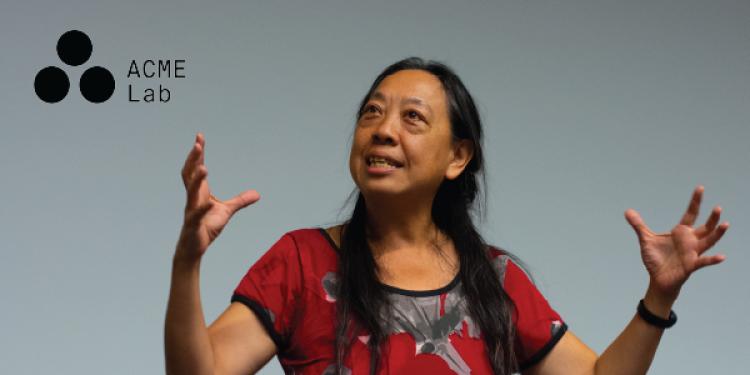
ACME Lab
Ellen Yi-Luen Do, Director
The ACME Creativity Machine Environment Lab explores and develops computational tools for design, creativity, cognition, tangible and embedded interaction, and computing for health and wellness.
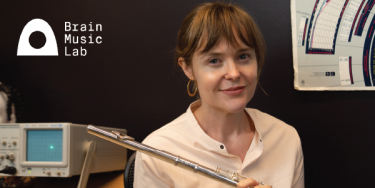
Brain Music Lab
Grace Leslie, Director
The Brain Music Lab pursues research to promote health and well-being by combining new music technologies with biometric data from EEG brainwave data and other physiological measurement techniques.
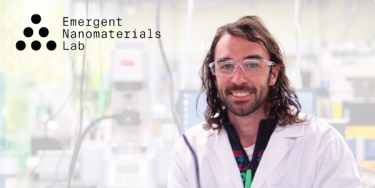
Emergent Nanomaterials Lab
Carson Bruns, Director
By synthesizing and combining nanoscale building blocks, the Emergent Nanomaterials Lab designs technologies that enhance the quality of human lives in health, sensory augmentation and self-expression.
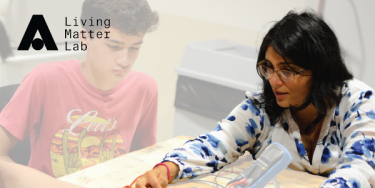
Living Matter Lab
Mirela Alistar, Director
Working at the intersection of biology, engineering and art, the Living Matter Lab interfaces with biological matter, the micro-world and the environment in unique ways.
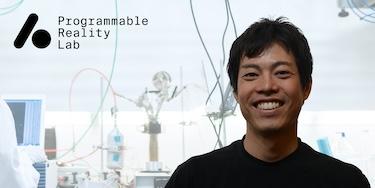
Programmable Reality Lab
Ryo Suzuki, Director
The goal of Programmable Reality Lab is to make our whole living environment dynamic, interactive, and programmable to transform our living space into a dynamic medium.
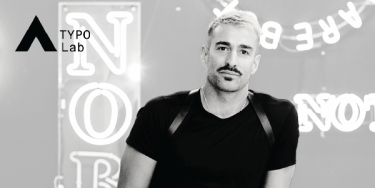
TYPO Lab
Joel Swanson, Director
TYPO Lab is an experimental studio for creative work and research related to the technologies of language. It empowers faculty and students to explore and appreciate the media and methods of words.
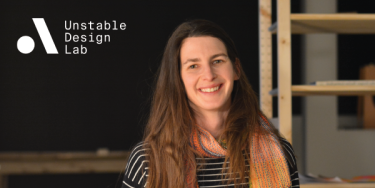
Unstable Design Lab
Laura Devendorf, Director
An advocate for the arts within engineering fields, the Unstable Design Lab focuses on advancing textile design and fabrication, including the integration of circuitry and other technologies.
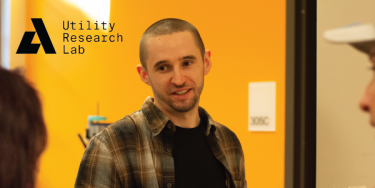
Utility Research Lab
Michael Rivera, Director
The Utility Research Lab invents and investigates digital fabrication technology, tools and techniques that empower us to create things that positively impact people, society and the environment.
ATLAS PhD Students Explore A Wide Range of Topics
Diversity
The ATLAS Institute encourages applications from students who will broaden the diversity of our graduate community. Diversity is essential to academic and workplace success, and we are committed to creating an inclusive and collaborative community. Learn more about how the ATLAS Institute pursues diversity.
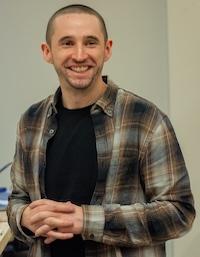
Crossing Disciplinary Boundaries
“ATLAS is a community where the curious come together to cross disciplinary boundaries and push the limits of our knowledge. As a lab director, I’m excited to connect with people who can bring new perspective to our research, and are eager to positively impact people, society, and the environment.”
— Assistant Professor and Utility Research Lab Director, Michael Rivera
PhD Application Fee Waiver
The College of Engineering and Applied Science at CU Boulder is once again offering a program that allows qualifying PhD applicants to waive their application fees until November 15, 2024.
The program is intended to support our college's strategic vision to become a premier destination for U.S. graduate students.
Minimum requirements:
- Applicant must be a U.S. citizen or U.S. permanent resident
- Applicant must be applying for a PhD program in the College of Engineering and Applied Science
- Applicant must be applying to enroll in fall 2025
- Applicant must have at least a 3.4 GPA from their accredited undergraduate institution
- Applicant must meet all department requirements for their PhD programs
- Application must be submitted by 11:59 p.m. MST on Nov. 15, 2024
The offer will be applied automatically to qualifying students in the application portal; no code is needed. Questions may be directed to Meredith Canode, senior director of graduate programs, at meredith.canode@colorado.edu
Further details can be found on the College of Engineering and Applied Science Fee Waiver page.
Additional Opportunities
Combined PhD in Cognitive Science: ATLAS PhD students can earn a combined degree with the Institute of Cognitive Science.
Opportunity for underrepresented students: The Colorado Advantage Graduate Preview Weekend gives underrepresented students a chance to visit campus, meet faculty, and preview doctoral programs in science, math, and engineering departments at CU-Boulder.
Opportunity for U.S. citizens, U.S. nationals and permanent residents: The National Science Foundation Graduate Research Fellowship Program provides three years of support over a five-year fellowship period for the graduate education of individuals who have demonstrated their potential for significant research achievements in STEM or STEM education. Deadlines in October.
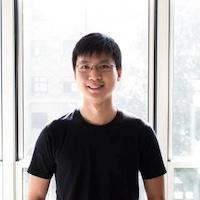
The ATLAS Institute is a rare place...
The ATLAS Institute is a rare place with a truly multi-disciplinary setup of research labs. As a PhD student, all I had to do was to walk next door to learn from, be inspired by, and collaborate with my colleagues who were working on robotics, textiles, biodesign, engineering, fabrication—you name it. This has fundamentally shaped my view on how a productive and successful research institute should be as a design technologist, and is the model that I aim to recreate with my current position.
— Clement Zheng, ATLAS PhD; Assistant Professor, National University of Singapore


